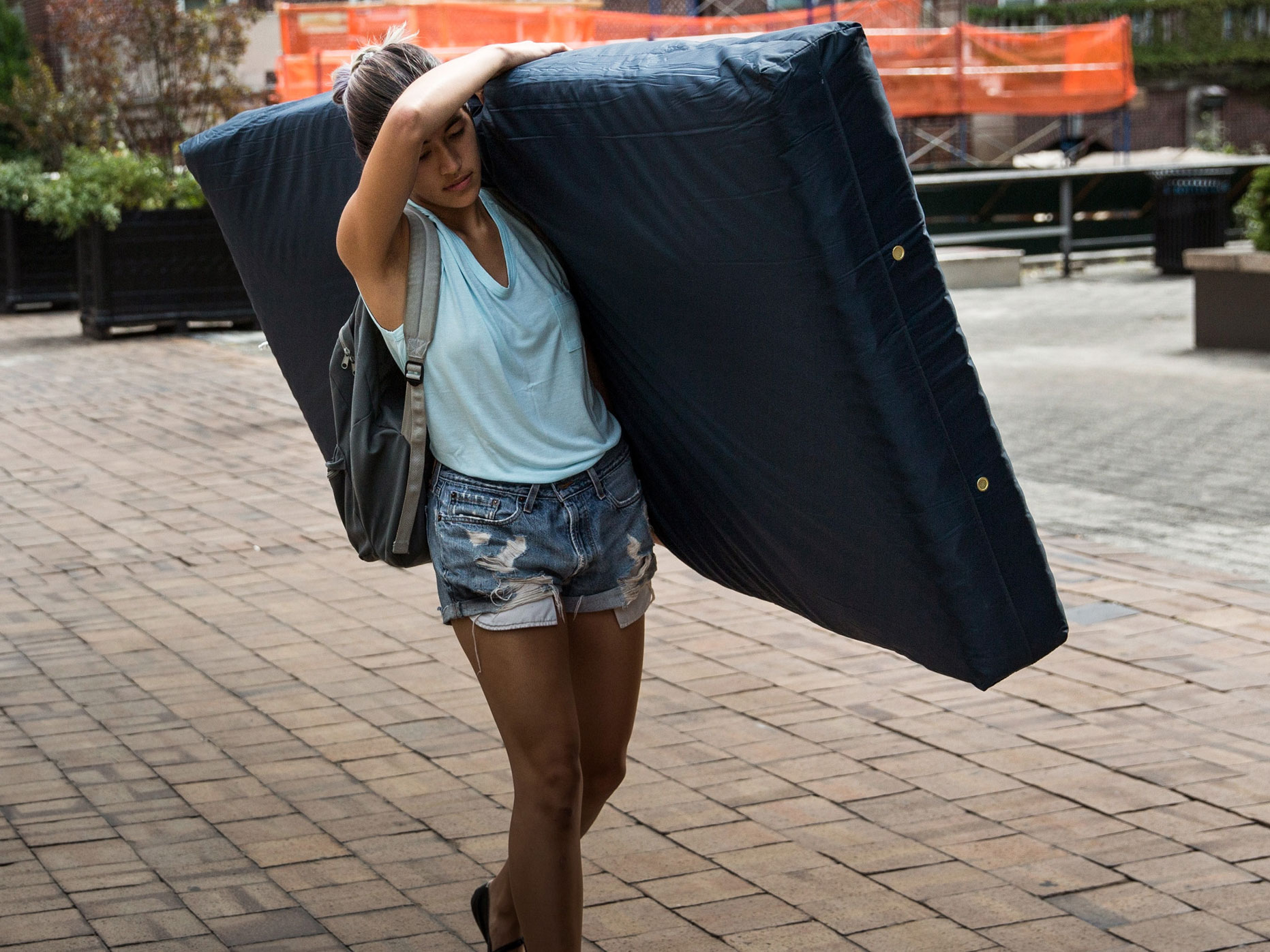
Rape culture is still a huge issue in UK universities as well. More than a third of female students there have suffered unwelcome advances in the form of inappropriate groping and touching, according to a National Union of Students survey published in September. Just a month later, the LSE Rugby Club was famously disbanded after their aggressively misogynistic freshers’ leaflet branded female hockey and netball players as “trollops, mingers and slags” donning short skirts to pick up guys and playing sports “just to come out with us on Wednesday’s”.
The Greek system of fraternities and sororities also has a lot to answer for when it comes to the promotion of sexual inappropriate behaviour on campuses. Trinity’s own all-male fraternity, Theta Omicron, models itself on the American Zeta Psi fraternity and several of its members were taken on an all-expenses paid trip to visit Zeta Psi chapters at US colleges to understand the structures and mechanics behind it. It is now officially backed by Zeta Psi, but, as it is not an official college society, it remains exempt from answering questions about its procedures, such as initiation ceremonies or membership fees. Instead, its business is conducted in secret and the fraternity is not accountable to anyone.
Consent
Sexual assault can take the form of threats, coercion or physical force. However, it can be much more subtle. A recent ad campaign in the UK depicting a rape showed a teenage couple making out. The boy pushes the boundaries of consent, even after the girl says no, and proceeds to rape her. Rape can also happen within long-term relationships, among friends and at parties. But sexual assault is always an act of violence and must be prosecuted as such. As the Rape Crisis Irish Bureau has put it, “the primary motivation in rape and sexual assault is the meeting of non-sexual needs, such as the need for power and domination and the expression of anger, rather than for sexual gratification.” According to its research, 7.5% of Irish women and 1.5 % of Irish men have experienced rape or attempted rape in adulthood. Similarly one in five women and one in ten men have experienced sexual assault in adulthood.
Irish context
The most recently published data on sexual assault in Irish universities comes from the Union of Students in Ireland’s Say Something campaign. Its survey, published in September 2013, found that 16% of students have experienced some form of unwanted sexual experience while at college. One in five women have experienced an unwanted sexual experience, while 11% experienced unwanted sexual contact. As little as 3% of victims reported this to the Gardai.
Meanwhile, the findings of an SU survey on sexual assault published last month indicated that 19% of Trinity students have experienced a non-consensual sexual experience, that 23% have experienced unwanted physical contact, while 8% have experience obsessive behaviour or stalking. 5% of the 1,038 polled students reported being physically abused by a partner in the past. The numbers were higher with female students compared to male and rocketed within those identifying themselves as LGBTQI.
Based on these statistics, can we say that Trinity students are now comfortable reporting sexual assault? Unfortunately, testimony from sources indicates that this isn’t the case For example, a University Times article in October 2014 recorded a revoked sexual assault claim within Trinity Halls. The JCR president at the time made no comment and, after an official Garda investigation was closed, no efforts were made to increase awareness within Halls or on campus.
Moves towards making Trinity a healthier and more vocal environment are being made. Not only does the Trinity Counselling Service provide free individual and group counselling for victims of sexual assault, the SU welfare officer Ian Mooney, is launching a campaign this semester on sexual assault, one of two long-term SU campaigns (the other one being on mental health). The SU hopes the campaigns will aid these “worrying” statistics on student mental, physical and sexual welfare.
These efforts are important as many students have no formal education on what to do as a victim, witness or culprit, so we don’t necessarily know when we are in any of these situations. Much of our education on sex and assault is warped by popular culture and mass media, which glorify an exaggerated version of maleness and ignores the concepts of consent or consequences.
Like many US and UK third-level institutions, Trinity must reiterate its zero-tolerance laws on sexual assault. This should target the gap in students’ consensual knowledge by rejecting both the idea of the “stereotypical rapist” and the encroaching lad culture. The issue can’t be ignored for any longer.
If you have experienced sexual assault you have a number of options. Please tell someone close to you or if not contact:
SU Welfare Team on tcdsu.org/welfare
TCD Student Counselling Team on 018961407
The Rape Crisis Centre for Ireland has a 24 Hour Helpline on 1800 778888 or go online at rapecrisishelp.ie






